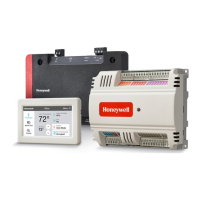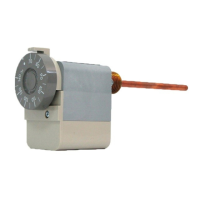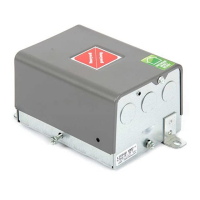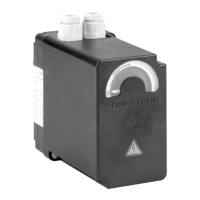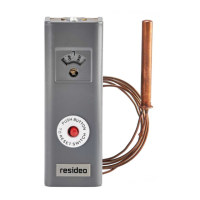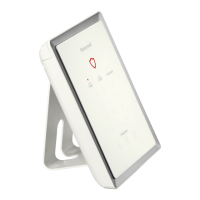Do you have a question about the Honeywell LP1501 and is the answer not in the manual?
Provides decision making, event reporting, and database storage for the Honeywell hardware platform.
Details UL-compliant installation requirements, product compliance, and performance levels.
Explains the meaning of CE and WEEE symbols used on the product.
Describes control of one physical barrier using single or paired readers, inputs, and relays.
Outlines cardholder capacity, transaction buffer, access levels, and card number formats.
Specifies the number of active card formats and compatibility with PIV-II, CAC, TWIC cards.
Lists tested card readers from HID and Honeywell with their models and part numbers.
Details alarm input configurations, including supervised and unsupervised states.
Details the warranty terms for material and workmanship defects for one year from shipment.
Outlines product usage limitations and liability disclaimers for misapplication or malfunction.
States the device complies with FCC Rules, outlining conditions for operation and interference.
Provides a diagram and overview of the PW7K1ICE control board components and connectors.
Details terminal connections for inputs, outputs, readers, power, and relays on the LP1501 board.
Explains the location and function of jumpers (J1, J3, J4, J5, J6, J7, J8) on the board.
Describes the function of DIP switches on S1 for configuring the LP1501 processor's operating mode.
Lists the default IP address, subnet mask, gateway, and DNS server settings.
Explains the purposes of the bulk erase function for configuration and database management.
Provides step-by-step instructions for performing a factory default reset using DIP switches.
Explains the two methods for powering the PW7K1ICE controller: PoE or 12VDC.
Details how the controller communicates via the Ethernet interface to the host.
Covers wiring for different reader types (TTL, F/2F, RS-485) and reader ports.
Explains wiring for input circuits, including supervised and unsupervised configurations.
Describes the wiring for Form-C relays used for door locks and alarm signaling.
Details the SRAM backup battery, data retention, and initial charging time.
Explains the meaning of various LEDs on the board during power-up and operation.
Provides guidance on securing the LP1501 installation with user accounts and network access.
Lists detailed electrical, environmental, and mechanical specifications for the device.
Provides information on optional mounting accessories like blank covers and junction boxes.
Introduces the Access Control Device Server Manager (ACDSM) for network and system configuration.
Guides users on connecting to the built-in web server using default IP and DIP switch settings.
Explains how to launch the web browser and log in to the Configuration Manager.
Details how to handle security certificate warnings and install a valid certificate.
Introduces the main configuration screen with navigation links for various settings.
Describes the Home screen and the navigation bar for accessing configuration options.
Guides on configuring IP address, hostname, subnet mask, gateway, and DNS server settings.
Details how to configure primary and alternate host port communication settings.
Explains how to view read-only device information like CPU, memory, and serial number.
Covers user management, password strength criteria, and adding/editing/deleting users.
Explains how to configure auto-save settings for retaining configuration changes.
Guides on restoring factory default or current operating settings for the controller.
Details the process of loading a certificate file and private key file for secure communication.
Provides steps to initialize the system and perform a download after creating a panel.
Explains how to log out of the web server configuration to complete the process.
| Brand | Honeywell |
|---|---|
| Model | LP1501 |
| Category | Controller |
| Language | English |
